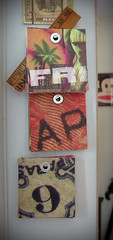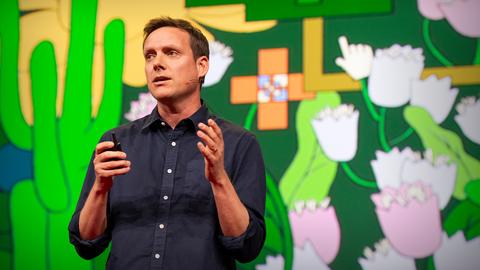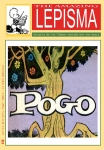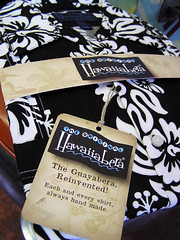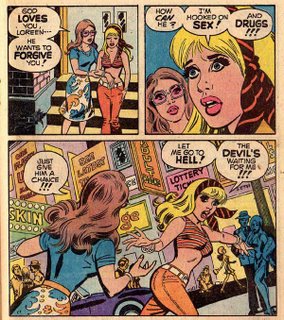
I found this story about a guy that's finally discovered the difference between branding and brainwashing...
We are surrounded by myriad brands, flashing neon signs, billboards, labels on our heads, feet and bodies, and the objects we hold in our hands. But what happens when one man tries to live without them?
I am addicted to brands. For as long as I can remember, they have occupied my thoughts during the waking day. What they look like, what they do, what they mean.
The majority of my modest income has been spent on them and I've gone to great lengths to acquire and be around them. I am a music promoter and style magazine editor by trade. In the first case that means putting on events that are often sponsored by brands. In the second it means understanding, keeping up with and talking about brands. Constantly.
As a young teenager, all I ever wanted to do was to work with my favourite brands - Adidas, Technics, Budweiser, Sony - the names that were plastered over the things I craved to own.
Where some boys had posters of footballers or movie stars on their walls, I had images of trainers and turntables - to be surrounded by these names made me feel better about myself, transforming me from my humdrum middle class life in south London suburbia.
But in less than a month's time, I am going to burn every branded thing in my possession. Gucci shoes, Habitat chairs, even Simple soap. I have reached the point in my life where I can no longer be around these things, no matter how special they make me feel. Yes, it is going to be a terrible waste, yes I'll no doubt feel lost when they're gone, but at this moment in time, it seems the only thing I can do.
Brands are all around us. In our homes, on our way to work, in the places we socialise and plastered over the things that entertain us.
Some brands are causes for celebration, being symbols of status or objects of beauty (BMW). Others are the subject of ridicule, somehow signifying a state in life which we cannot slip below (Skoda). In both cases, we take for granted that brands and their messages (advertising) are ever-present in our lives. This is what has come to worry me.
I belong to a generation that has been continually sold-to, almost from birth. If someone had taken the time to videotape my life, in a Truman Show type of way, there would be less than a few hours of tape in which there were no brands on the screen. On my food, on my clothes, on the telly and in my brain.
It is estimated that the average Briton receives over 3,000 advertising messages a day, and my brain's full of them: Mr Muscle loves the jobs you hate; Burger King flame grilled whopper for only £2.99; new Elvive anti-breakage shampoo from L'Oreal Paris; Oral B pulsar, changing the way you brush forever... and on it goes.
From an early age, I have been taught that to be accepted, to be loveable, to be cool, one must have the right stuff. At junior school, I tried to make friends with the popular kids, only to be ridiculed for the lack of stripes on my trainers.
Once I had nagged my parents to the point of buying me the shoes I was duly accepted at school, and I became much happier as a result. As long as my parents continued to buy me the brands, life was more fun. Now, at the age of 31, I still behave according to playground law.
I have been topping up my self-esteem and my social status by buying the right branded things, so that I feel good about myself, so that people can know who I am. In my world, the implications of wearing a crocodile as opposed to a polo player on the breast of one's shirt are of crucial importance. Understanding the differences between Dualit and Dyson, and what they say about their owners is reflection of style and good taste.
By now you're thinking that I am a particularly shallow individual, and to a certain extent, you'd be right. But I think that in small ways, we all behave like this in our daily lives. A stranger waves as they drive past in the same model car as our own. Snap judgments are made on youths dressed in white Reeboks and hoodies. That little bit extra spent on our favourite name brands in the supermarket is a small price to pay because we're worth it.
The manner in which we spend our money defines who we are. This theory isn't exactly new. Thorstein Veblen conjured the phrase "conspicuous consumption" back in 1899 in his book the Theory of the Leisure Class. In this secular society of ours, where family and church once gave us a sense of belonging, identity and meaning, there is now Apple, Mercedes and Coke.
These brands offer us a set of beliefs and goals which we can aspire to. Is this sounding far fetched? Don't take it from me, here's Kevin Roberts, worldwide CEO of Saatchi & Saatchi.
"For great brands to survive, they must create loyalty beyond reason. The secret is the use of mystery, sensuality and intimacy... the power to create long term emotional connections with consumers."
Being the gullible fool that I am, I believed in the promises that these brands made to me; that I would be more attractive, more successful, more happy for buying their stuff. However, the highs of consumerism have been accompanied by a continual, dull ache, growing slowly as the years have gone by; a melancholy that until recently I could not understand.
I now realise that it's these damn brands that are the source of the pain. For every new status symbol I acquire, for every new extension to my identity that I buy, I lose a piece of myself to the brands. I placed my trust, even some love with these companies, and what have I had in return for my loyalty and my faith? Absolutely nothing. How could they, they're just brands.
So, this is why I am burning all my stuff. To find real happiness, to find the real me, I must get rid of it all and start again, a brand-free life, if that is indeed possible. Perhaps if I consume on the basis of need instead of want, on utility instead of status, I might start to value material things for the right reasons. For the time being, I can only hope.
That's Right!
HMK
Thanks to Neil Boorman at the BBC

